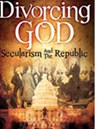Ed M. Vitagliano
AFA vice president
Illustration above: The logarithmic growth spiral of the Nautilus shell was discovered by Swiss mathematician Jacob Bernoulli in the mid-1600s. It is seen in numerous examples in nature including the approach of a hawk to its prey, the nerves of the cornea, and the bands of tropical cyclones.
Part 2 of series (click here for part 1)
September 2016 – God reveals himself in many ways. His glory is manifested in His word and in Jesus Christ (Hebrews 1:1-2); in His acts of mercy, grace, and power; and in nature, as is stated in Romans 1 and elsewhere in Scripture.
While God reveals Himself in nature, He has also chosen to reveal Himself particularly in His highest creation, mankind, who was created in the image and likeness of God (Genesis 1:26).
Objective law
One way men and women manifest the image of God is in their capacity to reason. Simply defined, reason is “the power of comprehending, inferring, or thinking especially in orderly rational ways,” according to the Merriam-Webster Dictionary.
Daniel Mark, assistant professor of political science and faculty associate of Matthew J. Ryan Center for the Study of Free Institutions and the Public Good at Villanova University, said, “[T]he same God who created the world is the same God that endowed us with the power of reason to understand that world and to understand His goodness.”
By this power, mankind was able to understand that there is an objective reality in nature that we are called to discover and embrace. To do so is to act in accordance with the image of God in which we have been created.
Some of the more obvious examples of this process of discovery are the physical laws that have been apprehended by science. Many of the scientific names we have come to admire – Johannes Kepler, Isaac Newton, Michael Faraday, Louis Agassiz, Louis Pasteur, Gregor Mendel, and many others – were individuals whose work reflected this view of the world.
They believed that since God fashioned nature in an orderly way, it therefore operates according to physical laws. The job of the scientist was to understand these “laws of nature,” draw conclusions from them, and make applications that benefited humanity.
Objective rights
However, distinct from the scientific laws of nature was a philosophical perspective called “natural law.” This view of the world, firmly entrenched in the minds of America’s founders, held that there are also philosophical laws that God has established in His creation. Men are required to apprehend these as well.
In the opening paragraph of the Declaration of Independence, Thomas Jefferson said that “the Laws of Nature and of Nature’s God” entitled the nations of the earth to a “separate and equal station.”
In the context of history, this was a striking statement. Jefferson was arguing – on behalf of the American colonies – that people had a right to govern themselves because God had purposed that it be so. Nature itself demonstrated this in ways so clear that they could be understood as laws.
In the second paragraph of the Declaration is undoubtedly one of the most famous phrases in modern history:
“We hold these truths to be self-evident, that all men are created equal, that they are endowed by their Creator with certain unalienable Rights, that among these are Life, Liberty and the pursuit of Happiness.”
The statement is breathtaking in its implications. Jefferson acknowledges the existence of a God Who created man and with that life-giving act also made it clear that all persons are equal before Him. In turn, that equality meant that all had certain rights that could not lawfully – that is, in the eyes of the Creator – be abridged by governments.
When Jefferson stated that such truths were self-evident, he was referencing natural law. The reality was objectively true – just as much as the laws of science. Human beings, empowered with reason, were expected to see and understand the breadth of blessings bestowed upon mankind. They were also expected to act accordingly.
Objective morality
Once people understood natural law, they were then to conform their individual and corporate morality (and their laws) to it.
Hadley Arkes, Edward N. Ney professor (emeritus) in American institutions and professor of jurisprudence at Amherst College, said Jefferson’s famous statement was rooted in “objective truths [and] the ways that are rightful and wrongful for the ordering of human life and the governance of human beings.”
Of course, once the words rightful and wrongful are used, we are discussing morality. Moreover, our founders did not believe that these concepts of right and wrong were matters of mere human opinion.
Peter Lillback, president and professor of historical theology and church history at Westminster Theological Seminary, said the founding generation believed standards of morality “actually come to us from the very nature of reality, from the nature of creation.”
This view of natural law does not detract from divine revelation but augments it. When it comes to God’s will for mankind, it is directly revealed by Him in Scripture and indirectly in nature.
As theologian and philosopher Thomas Aquinas said, “The divine law we know through revelation. But the natural law we know by the reasoning that is accessible to human beings as human beings.”
According to Robert George, reason was such a powerful instrument that even pagans could comprehend much of what was right and wrong in God’s eyes. George is McCormick professor of jurisprudence at Princeton University and founding director of the James Madison Program in American Ideals and Institutions.
“In his letter to the Romans, St. Paul refers to a law that is written on the hearts even of the Gentiles, who did not have the Law of Moses,” George said, “a law that is capable of enabling people to understand the difference between right and wrong in at least some matters, a law that is sufficient for accountability and even for judgment” (Romans 2:14-15).
Objective judgment
Of course, George is referring to eternal judgment. The fact that every person knows in his or her heart what is right and wrong means each person is culpable before a holy Judge. While it is true that natural law cannot save the lost, it is certainly sufficient to damn them.
Interestingly, the American founders also believed that ignoring natural law – with its objective morality and its panoply of objective rights – could result in national judgment.
Even Thomas Jefferson, certainly no evangelical Christian by any reasonable estimate, believed that the future of the Republic depended greatly on whether or not the American people obeyed God. One of his most famous quotes, which is summarized on the wall inside the Jefferson Memorial in Washington, D.C., states:
“And can the liberties of a nation be thought secure when we have removed their only firm basis, a conviction in the minds of the people that these liberties are the gift of God? That they are not to be violated but with His wrath? Indeed I tremble for my country when I reflect that God is just: that His justice cannot sleep forever….”
In their rush to overthrow natural law as the foundation of the Republic, secular progressives are risking the Republic itself. Thomas Jefferson would call that self-evident. 
Next in this series: The overthrow of natural law
 A Time to Speak is a 60-minute film from AFA highlighting the urgent need for Christians to pray, speak out, and vote. It’s a clarion call for the church to break the silence and preserve freedom for the coming generations. Available at afastore.net or 877-927-4917
A Time to Speak is a 60-minute film from AFA highlighting the urgent need for Christians to pray, speak out, and vote. It’s a clarion call for the church to break the silence and preserve freedom for the coming generations. Available at afastore.net or 877-927-4917
 Divorcing God: Secularism and the Republic examines the Founding Fathers’ beliefs about morality and religious faith as the pillars of our government and nation. Available at amazon.com.
Divorcing God: Secularism and the Republic examines the Founding Fathers’ beliefs about morality and religious faith as the pillars of our government and nation. Available at amazon.com.